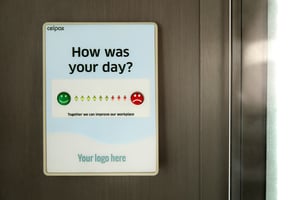Engaged and motivated employees are the lifeblood of any thriving organization. When employees feel...
Competency: What It Is and How to Assess It for Successful Hiring
Introduction
In today’s competitive job market, hiring the right talent is more crucial than ever. One key factor to evaluate during the recruitment process is competency—the combination of knowledge, skills, and behaviours that enable someone to perform effectively in a job role. For employers posting jobs on Voceer, understanding competency and knowing how to assess it can lead to better hiring decisions, reduced turnover, and a more productive workforce.
What Is Competency?
Competency refers to a person's ability to perform tasks or handle responsibilities effectively. It is a combination of:
- Knowledge: What the candidate knows (e.g., technical expertise).
- Skills: What the candidate can do (e.g., problem-solving, communication).
- Behaviour: How the candidate approaches tasks (e.g., teamwork, adaptability).
Competencies are often divided into two categories:
- Core Competencies: General attributes required across all roles in an organization, such as communication or teamwork.
- Role-Specific Competencies: Unique skills and knowledge needed for a specific job.
Why Assessing Competency Matters
Assessing competency ensures that the candidates:
- Fit the Role: They have the skills and traits required to succeed.
- Fit the Organisation: Their values and behaviours align with the company culture.
- Have Growth Potential: They can adapt to future challenges and opportunities.
Competency-based hiring can reduce biases in recruitment by focusing on measurable attributes rather than subjective opinions.
How to Assess Competency
To effectively assess competency, recruiters can use a combination of the following methods:
1. Competency-Based Interviews
Structured interviews are an excellent way to gauge a candidate's skills and behaviours.
- Behavioral Questions: Ask about past experiences to assess how candidates have handled specific situations.
Example: "Can you describe a time when you had to manage conflicting priorities? How did you handle it?" - STAR Technique: Look for answers that follow the Situation, Task, Action, Result format.
Resource: Learn more about competency-based interviews from Mind Tools.
2. Skills Assessments
Skills tests are a direct way to evaluate role-specific competencies:
- Technical Tests: Evaluate technical skills such as coding, data analysis, or writing.
- Problem-Solving Exercises: Present a scenario that reflects real job challenges to assess critical thinking.
- Soft Skills Assessments: Role-playing or situational judgment tests to measure communication, leadership, or emotional intelligence.
Resource: Tools like Vervoe and TestGorilla offer pre-built competency assessments.
3. Psychometric Testing
Psychometric tests help assess a candidate's personality, cognitive abilities, and work behaviors.
- Personality Tests: Assess traits like teamwork, leadership, and adaptability.
- Aptitude Tests: Evaluate logical reasoning, numerical ability, or verbal skills.
Resource: Explore tests like SHL or Hogan Assessments.
4. Work Samples and Simulations
Ask candidates to complete a task or project that mimics real job responsibilities:
- Portfolio Reviews: For creative roles like graphic design or writing.
- Job Simulations: Role-specific exercises, such as handling a customer complaint for a customer service role.
5. Peer and Team Assessments
Involve team members or peers in the evaluation process. They can provide valuable insights into how well a candidate might fit into the team dynamic.
Competency Frameworks: A Structured Approach
A competency framework defines the specific skills, knowledge, and behaviours needed for success in a role. Organisations can use frameworks to standardise hiring processes.
- Example Frameworks:
- The SHRM Competency Model (Society for Human Resource Management) outlines universal competencies like leadership and communication.
- Explore SHRM's competency resources.
Challenges in Competency Assessment
- Subjectivity: Even structured interviews can be prone to bias if not properly standardized.
- Overreliance on Experience: Focusing solely on past experiences may overlook potential.
- Time-Consuming: Comprehensive assessments may require significant time and resources.
The Role of Technology in Competency Assessment
Modern tools make competency assessment more efficient and accurate:
- AI Tools: Platforms like HireVue use AI to analyse video interviews for competency markers.
- Applicant Tracking Systems (ATS): Use ATS tools to match candidate profiles with role-specific competencies.
Final Thoughts
Assessing competency is a critical step in hiring the right talent for your organisation. By combining structured interviews, skills assessments, and modern tools, employers can ensure they hire candidates who not only fit the role but also contribute to long-term success.
For employers using Voceer, incorporating competency assessments into your hiring process can help you attract top-tier candidates and build stronger teams.
Start posting jobs today on Voceer.com and access a pool of talented candidates ready to meet your organisation’s needs!
References
- SHRM Competency Model: SHRM.org
- Competency-Based Interview Guide: Mind Tools
- Skills Testing Platforms: Vervoe, TestGorilla
- Psychometric Testing: Hogan Assessments



